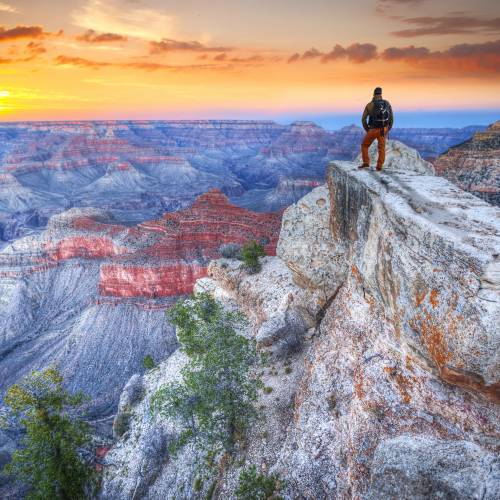City of Seven Wonders
Envied by many, Flagstaff’s backyard overflows with national parks and monuments.
There are seven within 10 to 80 miles. Explore the depths of the Grand Canyon, peer through 800 year- old pueblo windows, walk on the wild side and summit some peaks on your next adventure.
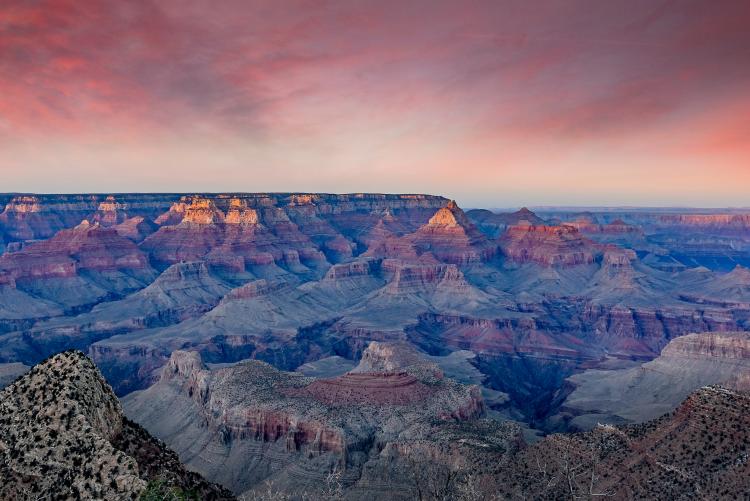
1. Grand Canyon National Park
The Grand Canyon achieved National Park status in 1919, although it was afforded Federal protection since 1893 as a forest reserve, and later as a National Monument. Only 80 miles northwest of Flagstaff, the Grand Canyon continues to see close to five million visitors each year. The most visited area of the park is Grand Canyon Village on the south rim. This area is listed as a National Historic Landmark District consisting of 257 structures.
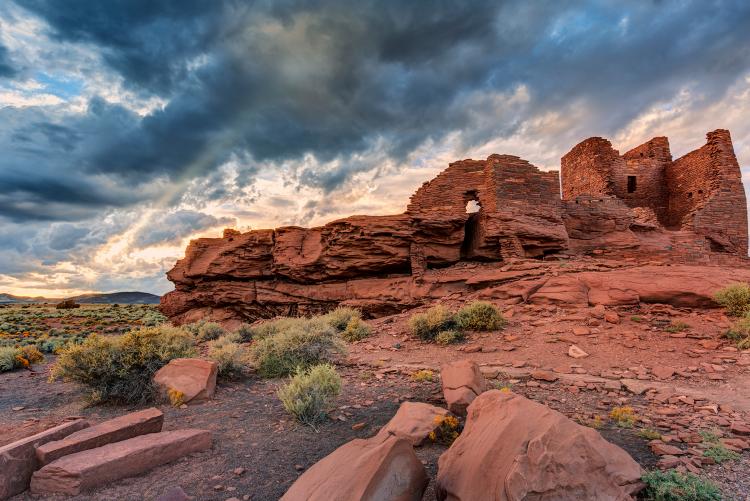
2. Wupatki National Monument
Rock walls of 800-year-old pueblos dot a desert landscape once home to thousands of people. Visitor Center exhibits explain how they survived by farming, hunting and gathering, and trading. Short trails lead to Wupatki, Lomaki and other pueblos. The scenic drive to Sunset Crater Volcano National Monument climbs rapidly from desert to mountain landscapes.
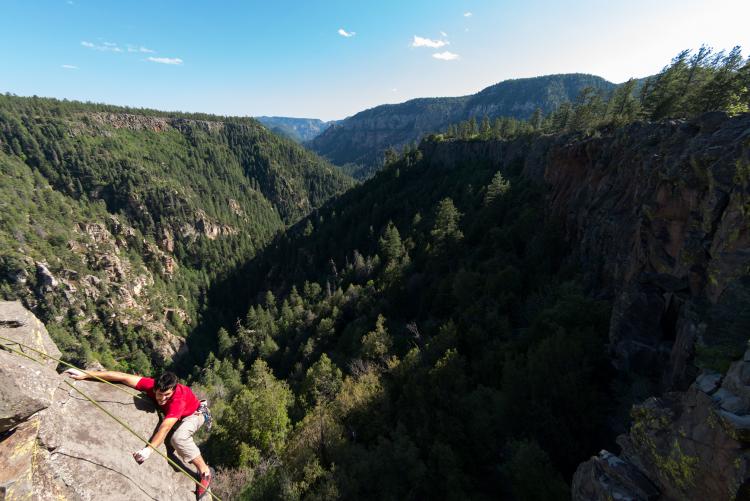
3. Oak Creek Canyon
Just south of Flagstaff, Arizona State Route 89A descends a breathtaking series of switchbacks into a scenic, smaller cousin of the Grand Canyon. Known for colorful rocks and unique formations, Oak Creek Canyon is famous the world around for its spectacular scenery
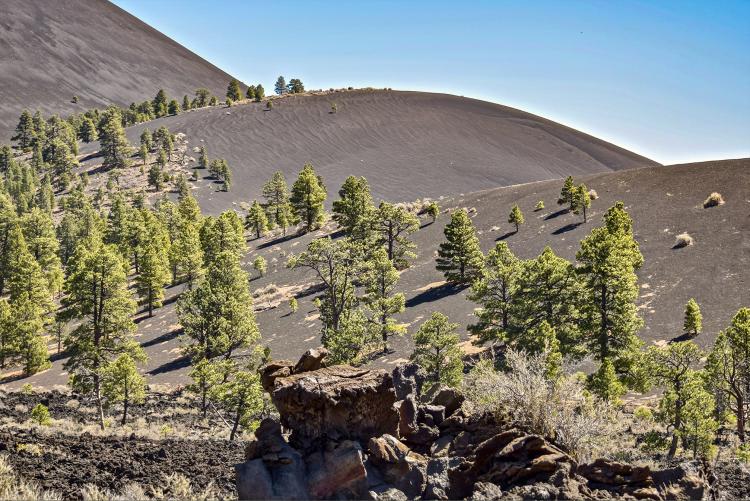
4. Sunset Crater Volcano
Born in a dramatic series of eruptions only 900 years ago, Sunset Crater is still the youngest volcano on the Colorado Plateau. Visitor Center exhibits explain the powerful geologic forces and their aftermath. See for yourself on the one-mile, self-guided Lava Flow Trail.
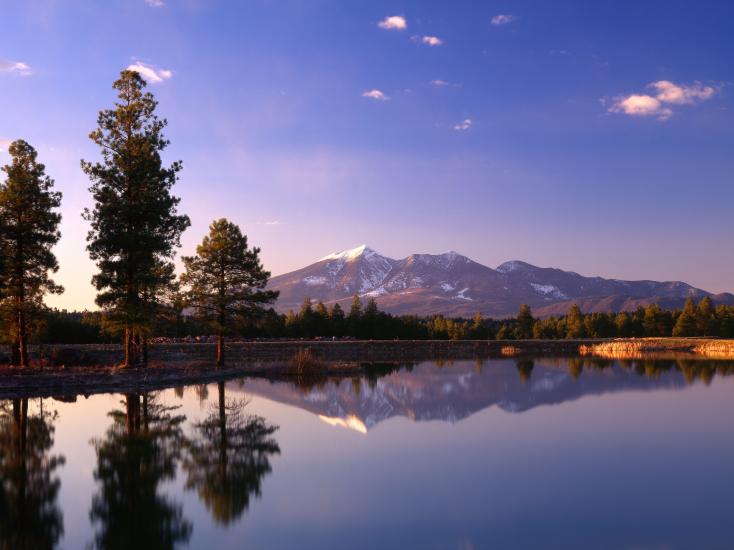
5. San Francisco Peaks
Towering at 12,633 feet, the mountains stand their lonely sentinel over a vast plateau; the forested gem in the crown of a great desert state. To some they are a sacred place, to some they are a place of recreation and to others, one of intro- spection. But to all they are a place of awesome majesty and beauty that is unrivaled throughout the region. These are the San Francisco Peaks
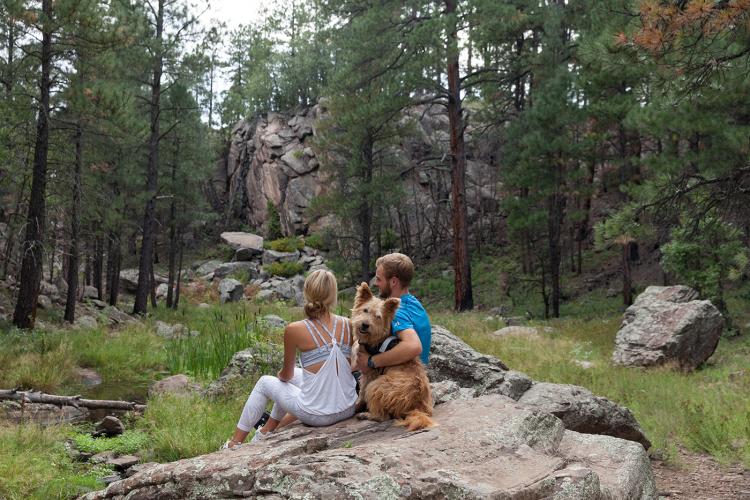
6. Coconino National Forest
Flagstaff boasts many superlatives, but perhaps the most appropriate one is the fact that the town is located in the largest contiguous Ponderosa pine forest in the world. The ecosystems that surround Flagstaff span from piñon-juniper woodland to alpine tundra, but it is the Ponderosa pine forest in-between that dominates the area. This towering tree only grows at elevations between 6,000 and 8,000 feet, making Flagstaff’s 7,000-foot elevation the perfect home.
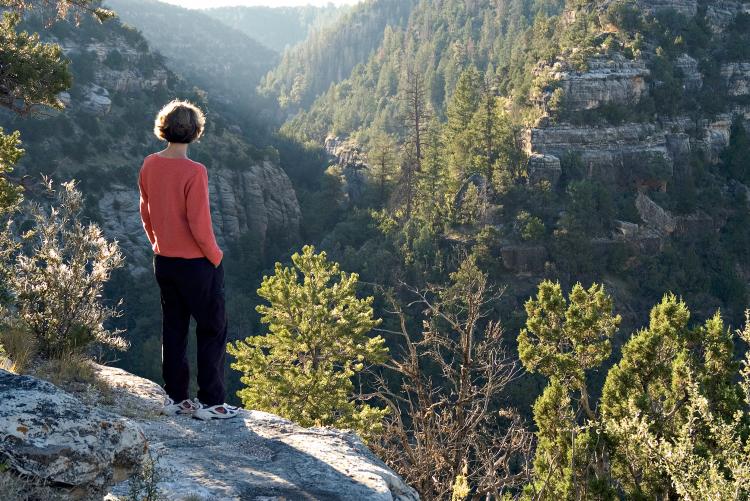
7. Walnut Canyon
Walk among the cliff dwellings and pueblos where people lived only 800 years ago. Experience the dramatic geology, varied vegetation and wildlife that made their lives possible. Visitor Center exhibits explain their daily lives. The strenuous one-mile Island Trail descends into Walnut Canyon while the shorter Rim Trail offers overlooks and a pithouse display.

